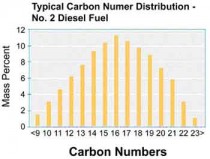No doubt we all worry about whether or not our engines may be damaged when we use “bad fuel”. And if my fuel is dark, should I assume the worst? Engines are costly investments and no one wants to accelerate an engine’s demise by running inadequate fuel through it and potentially causing harmful results.
And where does engine failure usually start? In the fuel tank! A diesel engine is an intricate machine that can actually run for quite a long time given:
- Its mechanical components are functioning properly and are in good condition;
- All other systems within the engine, such as cooling and the lube system, are working appropriately;
- Clean oil is flowing through the engine and its components; and
- An adequate flow of clean air is available and reaching the combustion chamber.
So what is the potential weak link in the chain? Your fuel quality.










